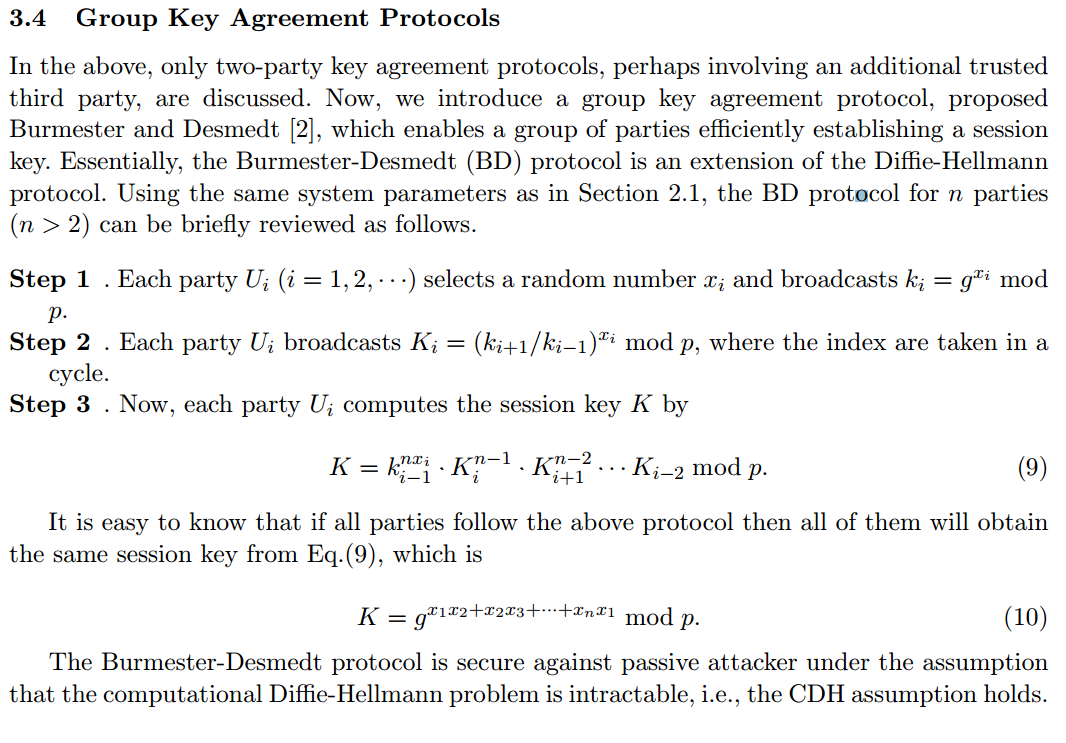As I look upon Burmester Desmedt algorithm:
I notice that the intermediate key $K_i$ is getting calculated as:
$K_i=(k_{i+1}/k_{i-1})^{x_i} \mod p$
Thus I wonder wheher the division $k_{i+1}/k_{i-1}$ should result an integer of a floating point number.

